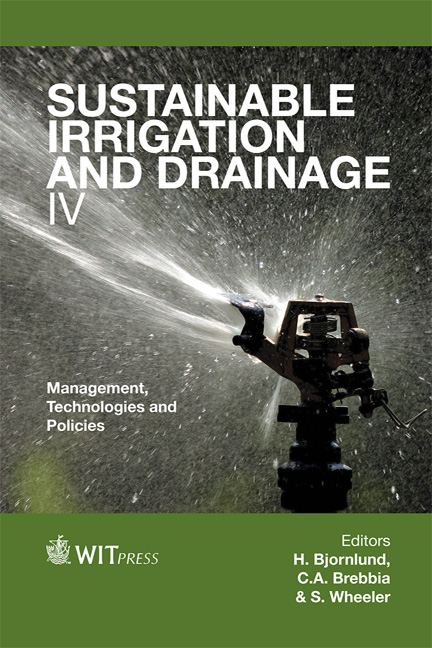\“Localism” As An Approach To Community Participation In Australian Water Planning
Price
Free (open access)
Transaction
Volume
168
Pages
11
Page Range
63 - 73
Published
2012
Size
503 kb
Paper DOI
10.2495/SI120061
Copyright
WIT Press
Author(s)
P. L. Tan
Abstract
Sharing of water between competing uses of surface and groundwater systems across Australia is based on water plans. Based on adaptive management, planning involves the use of participatory processes to achieve a balance between consumptive and in-stream uses of water. Tensions between different stakeholders and values are particularly evident where overallocated water systems are required to be returned to an environmentally sustainable level of extraction, as shown in current processes for a Basin Plan in the Murray-Darling. Parliamentary enquiries have called for the incorporation of \“local” approaches in water planning to ease these tensions. Two recent projects identify barriers and bridges to collaborative water planning, and in a variety of contexts, trial practical tools to address issues identified by stakeholders and agencies. Major findings include identification of factors that improve community confidence of plans. These results have implications for water planning in other countries especially where the science is contested, social values are uncertain and communities diverse. Keywords: water allocation, water planning, participatory processes, sustainability, Australia, Murray-Darling Basin.
Keywords
water allocation, water planning, participatory processes, sustainability, Australia, Murray-Darling Basin.





